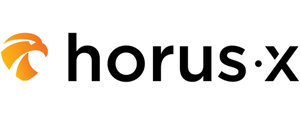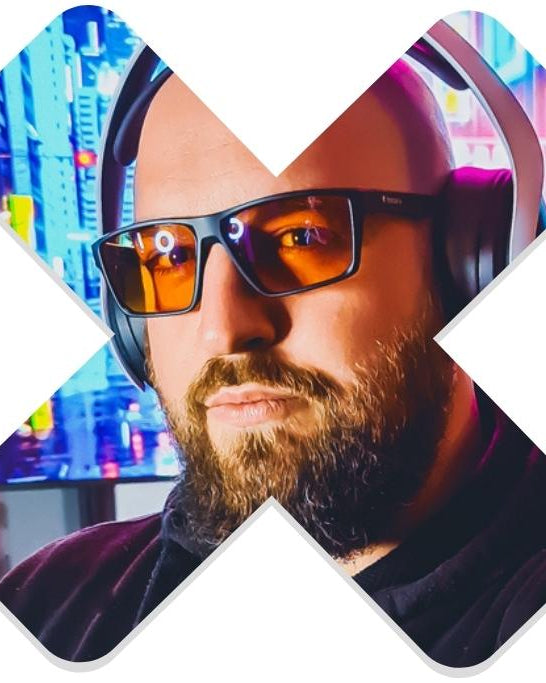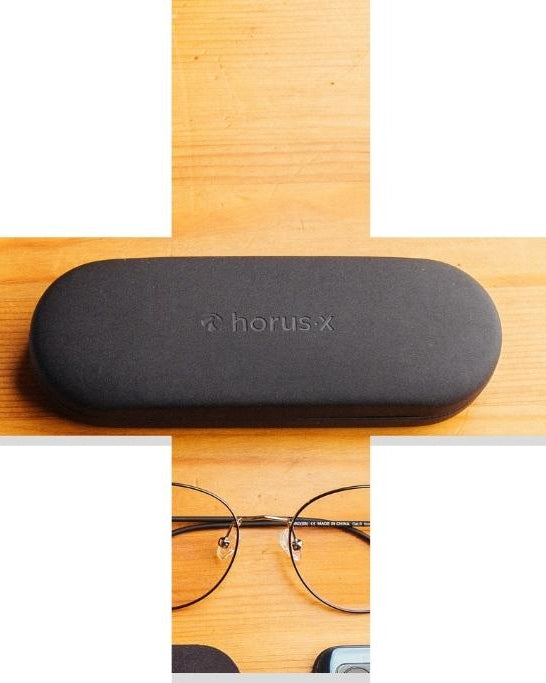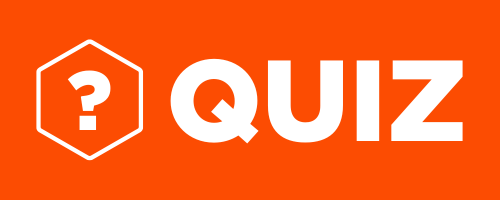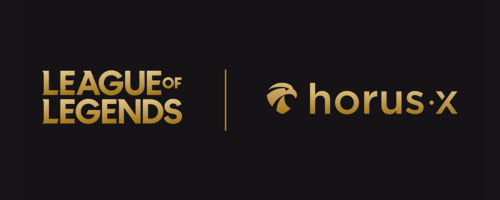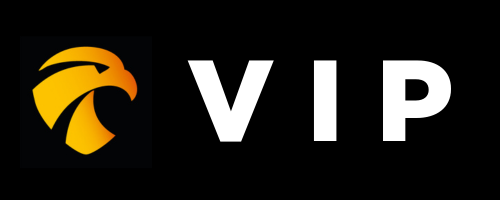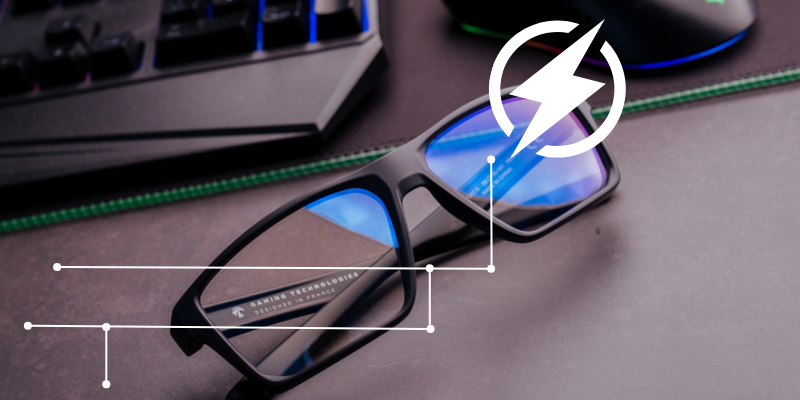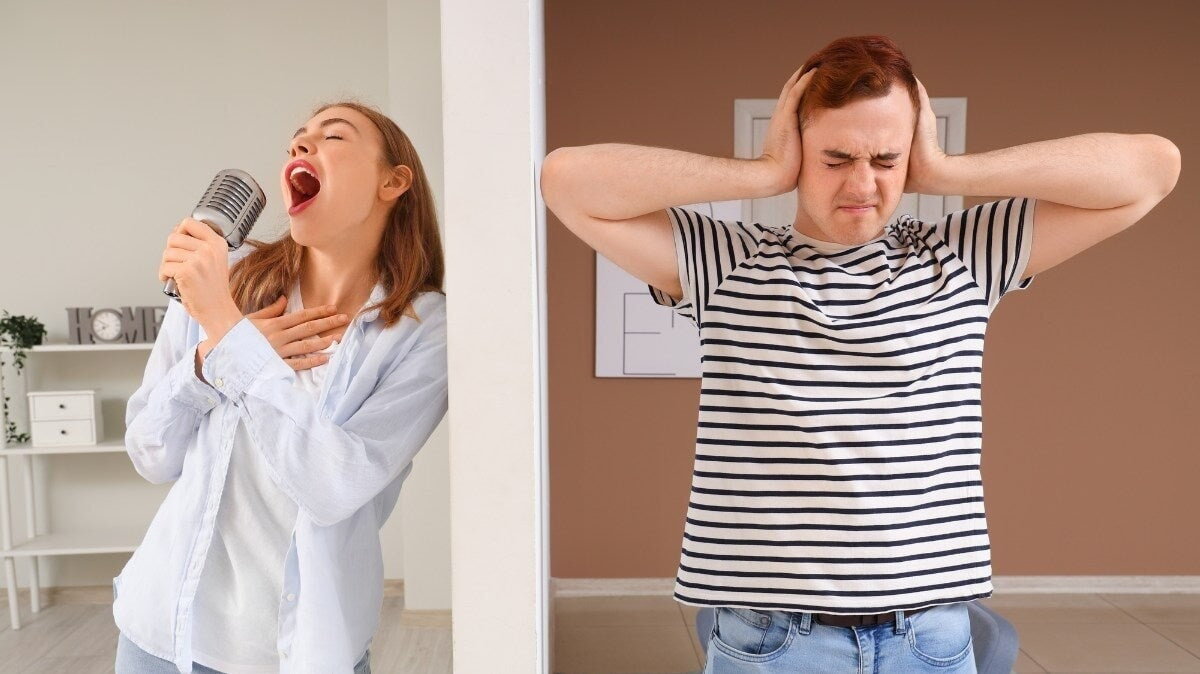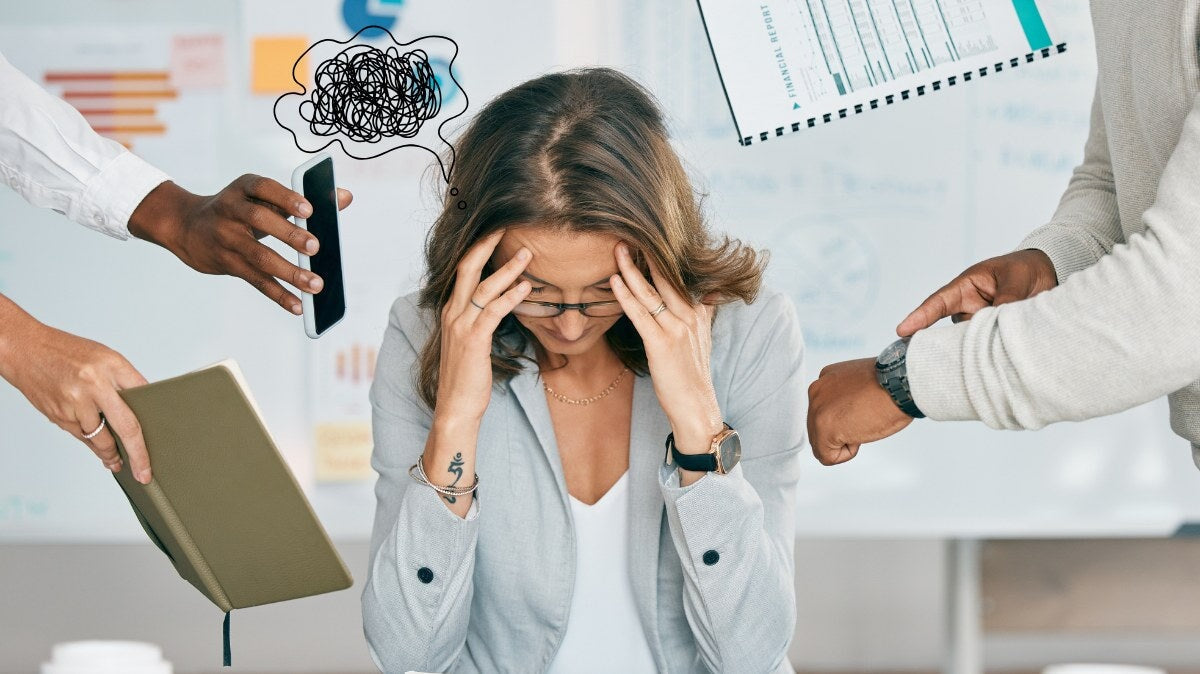If you too feel overwhelmed by your 102 open tabs, lost between emails to process, Slack notifications, and other digital requests, you may be suffering from digital burnout.
According to a study by the 2025 Digital Barometer, nearly 72% of French people spend more than two hours a day in front of screens for personal use. For a quarter of us, this even rises to more than five hours a day.
A worrying figure when you consider the impact screens have on physical and mental health. Add to that the amount of time spent in front of digital technologies at work, and BAM!
If you're one of those people who spends at least seven hours a day working on a computer, chances are you're at risk for digital fatigue.
But what is digital stress? How do you recognize this state of mental and cognitive exhaustion? And most importantly, how can you combat digital fatigue? Stay tuned, we'll tell you everything!
Digital burnout, digital stress: what’s that?

Digital fatigue can be defined as a form of mental and physical fatigue caused by excessive and prolonged exposure to screens, often linked to information overload and intensive use of digital tools.
There are several factors that can cause you to develop digital fatigue:

- Hyperconnectivity: Hyperconnectivity is a major factor in digital fatigue. You're on high alert, constantly checking your emails and social media, you're reachable at all hours, and you can't really disconnect.
- Information overload (also called "infobesity"): notifications, a stream of data, and content will constantly solicit you. The result? Your brain will struggle to process the information and become saturated!
- A constant sense of urgency, the fear of missing out on something important (the famous FOMO), which prevents you from really switching off and puts you under stress.
- A pressure to react has become commonplace, a lack of boundaries between professional and personal life: you end up associating digital tools, screens and stress.
- Multitasking: Superpower or lack of focus? You think you can handle everything at once, but you find yourself getting distracted and feeling like you can't focus on any one task.
- No real disconnection: we see you spending your coffee break scrolling! Without realizing it, you're not really helping your brain unwind.
- A poorly managed digital work environment: unsuitable tools, a poorly optimized workspace, too many (or poorly configured) apps, for example.
The list is obviously not exhaustive, but you're starting to see what we're talking about. This fatigue can actually worsen an already existing professional burnout, because it can be included in the INRS list of psychosocial risks.
💡 Note: In addition, overexposure to blue light from screens can expose you to digital eye strain. If you need more information on the subject, we recommend reading our complete guide: eye strain, causes, symptoms, and solutions.
Signs You're Suffering from Digital Burnout

But then, what are the symptoms of digital fatigue?
-
☁️ Brain fog : feeling like your brain is overloaded, having difficulty thinking or concentrating.
-
😵💫 Concentration problems : You move from one task to another without finishing anything, and you forget what you were doing five minutes ago.
-
😴 Sleep disorders : difficulty falling asleep, nighttime awakenings, insomnia... all of this can also be linked to chronic stress and significant digital fatigue.
-
😣 Irritability and low morale : nervousness, stress, anxiety
-
🤕 Eye strain : frequent migraines, blurred vision, itchy eyes, excessive watering... All these symptoms can come from the impact of blue light on your little eyes!
-
🤯 Feeling constantly saturated : too much information, too many notifications, too much of everything... your brain is crying out for a break!
-
📱 Digital addiction : and yet, an irrepressible urge to check your phone, emails, or social media. A vicious cycle indeed.
If this sounds like you, it's time to do something about it. Don't worry, we're here to give you some tips to reduce digital fatigue!
Best practices: 5 tips to avoid digital fatigue
🔌 The right to disconnect

That's the basics: relearn how to put down your screens! And if your boss is angry, remember that the right to disconnect is enshrined in law, and for good reason.
Take regular breaks (this will also improve your well-being at work and your productivity, yes indeed). No more long hours of uninterrupted work: step away from your workstation and go outside for some fresh air if you can.
Redefine your professional-private life boundary: ban professional tools outside of working hours, close your professional email inbox as soon as you leave the office, and no longer agree to be contacted outside of these hours.
Your brain isn't a machine : you can't expect to function properly if you wake up with your smartphone in your hand checking emails and fall asleep with YouTube (any resemblance to a real-life situation is intentional). Even our hyperconnected generation needs a break.
❌ Stop multitasking

You know, that famous multitasking mode that makes you everywhere and nowhere at the same time! Focusing on one thing at a time will actually allow you to be more productive and less stressed.
To do this, start by setting clear and achievable goals so you have a to-do list that won't make you hyperventilate just by looking at it. A well-oiled organization will help you see things more clearly.
Set aside blocks of time to work on a specific task, group small tasks into a single block (this is called batching), and put your phone in "work" or "focus" mode to avoid distractions.
You can also opt for the Pomodoro method , tried and tested by Horus X: 25 minutes of concentration, 5 minutes of break (adaptable to 50 minutes of work and 10 minutes of break). It's a method that takes care of your state of mind while boosting your productivity, excellent in all areas, from revisions to work.
Pick your battles: You can't be everywhere, all the time. And that goes for remote productivity too: just because you're working from home doesn't mean you have to compensate by doing more.
📱 Limit your screen time

Well, you saw this one coming from afar: but concretely, how can we better manage our screen time ?
This obviously means spending less time on smartphones, turning off notifications to avoid incessant requests and interruptions, and banning your phone from the bedroom so you're not scrolling instead of falling asleep.
It is also recommended to limit or even stop exposure to blue light from screens at least one hour before going to bed to promote sleep.
And if you really want to use your phone, there are several digital tools like digital wellness apps to help you adopt healthier habits.
🙏 Reconnect with the real world

More broadly, redefine your relationship with screens and work: you can start a mini digital detox, take up sport again, reading, find new hobbies, etc.
Give yourself permission to "do nothing" without feeling guilty, replace that annoying video call with an in-person meeting, and come out of your cave and see the light of day ! The world isn't going to end if you don't reply to this email before tomorrow morning.
🔵 Filters blue light from screens

We couldn't finish without mentioning blue light prevention, it's our specialty!
The must in addition to everything we mentioned previously is to:
- Choose the right glasses for your screens : those that filter up to 100% of the ultra-harmful spectrum (380-400 nm). Our patented transparent lenses guarantee 60% filtration of blue light (380-450 nm), and that goes up to 86% for our amber lenses. All this without breaking the bank!
- Try the 20-20-20 rule when you're at your computer: every 20 minutes, look 20 feet (6 m) away for 20 seconds to rest your eyes.
The final word: digital exhaustion, when screens make your brain freeze
-
What is digital fatigue? It's when your brain says stop after too many screens, too many notifications, too much information. Tiredness, brain fog, exploding eyes: it's time to slow down.
-
What are the signs of digital burnout? If you experience persistent fatigue, difficulty concentrating, headaches, eye problems, low morale, mood swings, screen addiction, and even sleep disturbances… BINGO! You may be suffering from digital fatigue.
- Digital burnout is a serious issue. It's your daily quality of life that's affected! But a few tips can help you prevent and limit the damage.
-
How can you avoid digital burnout? Start by reducing your screen time, setting limits, taking regular breaks, turning off notifications, avoiding multitasking, and structuring your days.
- Finally, pay particular attention to screens in the evening: reduce artificial blue light as much as possible at least an hour before going to bed, and disconnect by banishing your smartphone from the bedroom!
